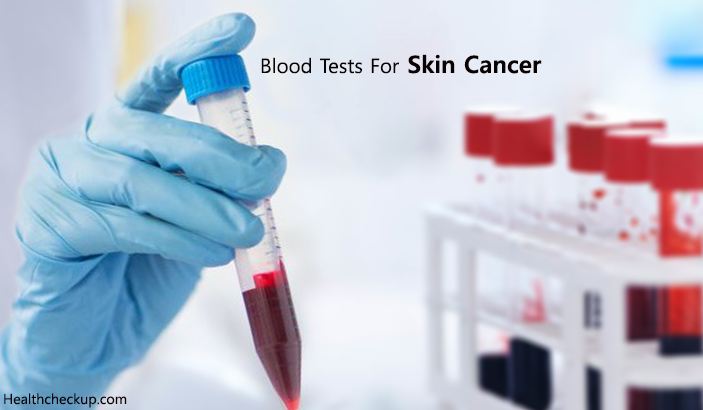Skin cancer is a fairly common cancer type. It accounts for nearly 40% of all cancer cases. The three types of skin cancer are basal cell carcinoma, squamous cell carcinoma and malignant melanoma skin cancers. Melanoma cancers cause the most deaths resulting from skin cancer. This is because melanomas tend to spread to nearby tissue and other parts of the body. Diagnosis of skin cancer is done in a medical facility through physical examination, imaging tests, tissue biopsy and blood tests for skin cancer. Skin cancer is highly treatable with early detection.
Does Skin Cancer Show Up In Blood Tests?
The first major step towards diagnosis of skin cancer is a biopsy. Imaging tests may be used before, during or after a biopsy. Imaging helps your doctor see what is happening beneath your skin, and the extent of disease. It also makes it easier for medical professionals to collect a specimen for skin cancer biopsy tests. Use of imaging technology adds quality to the process of diagnosing and treating skin cancers.
Your healthcare provider or doctor will ask for a blood test if you have skin cancer biopsy positive results. Skin cancer shows up in a number of blood tests. Your doctor will order the tests that you will undergo. A blood sample usually drawn by venipuncture is needed for the tests. Blood tests for skin cancer focus on melanoma skin cancer. The tests help in identifying if a melanoma has spread to other body tissues and organs.
Blood Tests for Skin Cancer
Blood tests for skin cancer are not oriented towards diagnosis, but rather towards tracking your skin cancer. Such tests may be done before or after diagnosis of melanoma skin cancer. There are three main tests for blood cancer;
1. Lactate Dehydrogenase (LDH) Test
2. Cell counts
3. Biochemistry
Lactate Dehydrogenase Test
This test checks the levels of LDH in your blood. A high level of LDH is an indicator that your skin cancer has spread and may be difficult to treat. This test may be performed severally over a period of time to track how well treatment is working for you.
Blood Cell Count and Blood Chemistry
These two blood tests for cancer are done when you have advanced melanoma skin cancer. They help your doctor understand how well the kidneys, bone marrow and liver are working as you undergo treatment.
Recent medical advances point towards nucleic acid tests for blood cancer. In 2013, results of a study showed that measuring levels of specific chemically tagged genes could inform doctors on whether a melanoma sin cancer has started spreading. In separate research findings by cancer scientists in the United Kingdom, it is possible to predict the return of aggressive skin cancer by testing the blood of skin cancer patients. At their tests, the scientists checked the blood from these patients for tumor DNA.
Symptoms of Skin Cancer
Skin Cancer Symptoms that you Should Look Out for Include
- Unusual skin moles, bumps, sores, blemishes and markings. Skin cancer makes your skin change in looks and feel. Sores due to skin cancer heal with difficulty or not at all.
- A spot on your skin that changes its color, shape and size. The color may be seen spreading to nearby skin areas too.
- A spot on your skin that is different from other spots. This is called the ugly duckling sign.
A rule called the ABCDE rule is applied in assessing skin spots for their likelihood to be cancerous. It checks for Asymmetry, Border irregularities, Color variations, Diameter of the spot and Evolution of skin spots and moles.
It is very important that you tell your doctor about new spots on your skin and any changes you note in the old ones. You should also have your doctor examine the areas of your skin that you cannot see yourself.
Treatment For Skin Cancer
Once you are diagnosed with skin cancer, you will be started on treatment. As aforementioned, skin cancers are very treatable. Melanoma skin cancer that has spread presents difficulty in management but is treatable.
Treatments for basal cell and squamous cell skin cancer involve surgical removal of the small tumors. Cauterization using an electric current, low-dose radiation, freezing and skin scraping may be employed. In more complex scenarios of skin cancer including melanoma, radiation, immunotherapy and chemotherapy treatments are utilized. A wide range of medications is available for the management and treatment of skin cancers.
Once you have been healed of skin cancer, you may still have to undergo some blood tests for skin cancer. Testing during treatment and after treatment is important to check the effectiveness of the treatment regime you are on. It also helps detect reemergence of skin cancer at a later time – if it reemerges at all.
Medically Reviewed By

Professionally, a trained Microbiologist and Plant operator, Eustace is an experienced health content writer who is passionate about helping people lead a healthy life.









